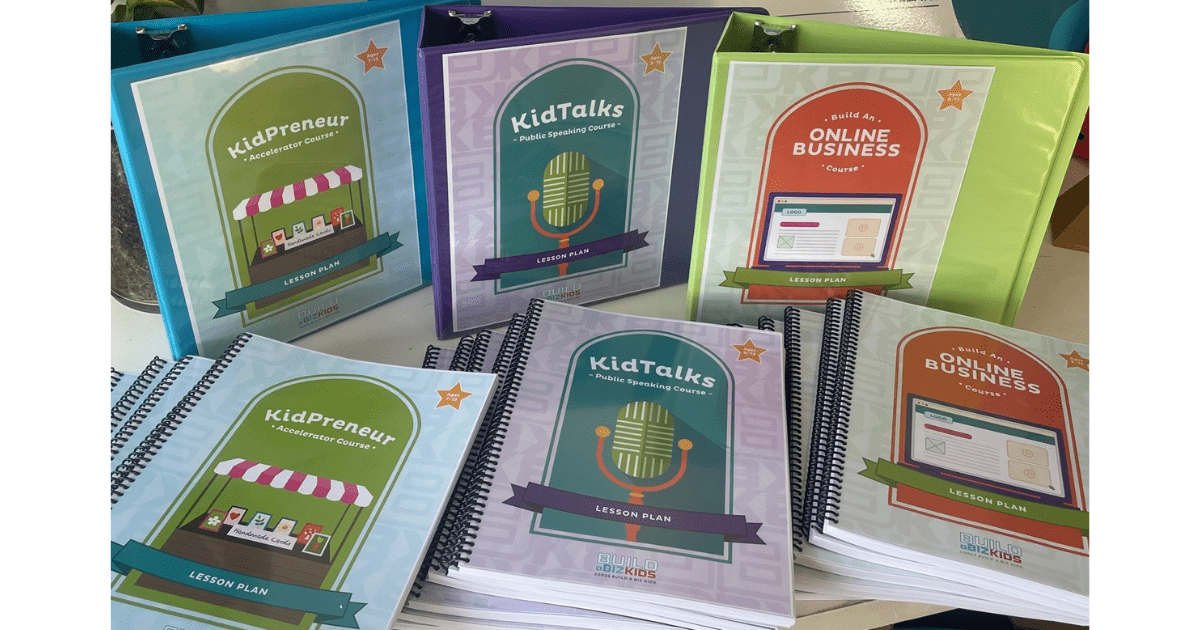Today was one of the more interesting days for seeing development in our students during our Build a Biz Kids Lemonade Stand Challenge Summer Camp. Day 3 is all about creating prototypes of their product and then test marketing them with real people; A critical step in any business but more often than not, it’s skipped.
No really, it is. Look at your business. When was the last time you gave a sample of your business service or product while in development to a customer and asked for their opinion on it from top to bottom, start to finish & encourage raw truth? And I don’t mean an online survey with a score of 1-5 for satisfaction.
Let’s take a Mortgage Broker or Real Estate Agent as an example. Many don’t even consider their service to be testable or in development. It is what it is and I just do what everyone does. Advertise, have a coffee with clients, do my thing and then send flowers or a gift at the end. But services should be tested formally just as much as products.
The most dangerous entrepreneurs are those who made a tangible product based on their own personal need and fail to ask HONEST feedback on it from strangers. Tangible products cost a lot of money, especially when buying in high quantities so please, please, don’t just ask friends and family. Stand on a street corner or go to your potential market and ask them to rip it to shreds. In fact, only ask them for negative feedback and see what you get. Best to know now then once you have spent $100k on a warehouse of widgets only 20 people might be willing to buy.
This is where What You “Know” Might Be Costing You Money. Because what you know is not always what everyone else is willing to pay for.
Day 3 of our Build a Biz Kids Summer Camp is a special day and a BIG eye opener for our students. As many parents know, kids taste pallets are not as developed and, therefore, sometimes their concoctions are not what they thought they would be.
For example, the Red team wanted to create a cherry lemonade & a lemonade and Sprite with pretty straws & pink tissue bows. The Blue team created an orange lemonade and mango lemonade with dainty lemon wedges on the cups.
One mixed, the Red team didn’t like the tart cherry juice at all. (I think they envisioned grenadine and not real cherry juice). While the Lemonade & Sprite was better, only half of the team was ok with the tart lemon flavour and fizzy bubbles of the Sprite.
The Blue team battled it out but ended up scraping their orange lemonade due to the “yucky” factor and, again, were split over how successful their mango lemon twist would be.
After pouring and garnishing their samples, they went out into the world and found brave adults to try their mixtures. With notebooks in hand, they explained their recipes and asked direct questions about their product.
“On a scale of 1-5, how do you like the taste? How pretty is it? What don’t you like about it? Do you have any additional comments so we can make it better?”
What surprised them was that adults like the taste of the tart lemonade and the feeling of fizzy Sprite on their tongue. They also liked the mango twist and thought it was tropical tasting. The kids who were very certain that no one would like it were a little confused but in a good way. They were relieved they had a recipe that might work!
“It needs to be colder though”, “I wouldn’t drink this in the morning because it’s too sweet but in the afternoon it would be perfect!”, “I feel like I should be in the sun drinking this! It’s so tropical!”
The kids were sometimes confused by the feedback as some liked sweet drinks and others didn’t. Some loved mango and others weren’t as big of fans. They learned the value of note taking and, at the end, reviewed their results. The kids who were shy to talk to strangers ended up forgetting their were chatting with random adults because they were super interested in hearing the feedback and write it down.
Aside from becoming better bartenders, these kids explored some important lessons from the day.
– Don’t assume your taste buds are the same as others.
– You can’t please everyone, so go with the majority
– Don’t assume you will get it perfect the first time but keep working on it
– Always welcome negative feedback. It does’t mean you did anything wrong or should give up. It means you know more now so you can make it better next time. Negative feedback is just as important as positive feedback
We are often asked, what is the difference between your programs? Well, in the end, nothing, and everything. A child could take our program over and over and over again, especially our after school programs, and never have the same experience. We teach kids how to start a business and to skip any of these critical steps would be setting them up to fail.
While we dive deeper into concepts in some courses more than others, yes, your child will learn how to developed a product or service through exploring passions & solving problem. They will learn how to make a prototype and test it as much as possible. They will develop a marketing plan and test out their communication with a 30 second elevator pitch before going to market.
But guess what, we would make you do all of that too 🙂



